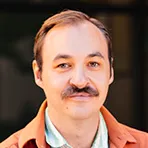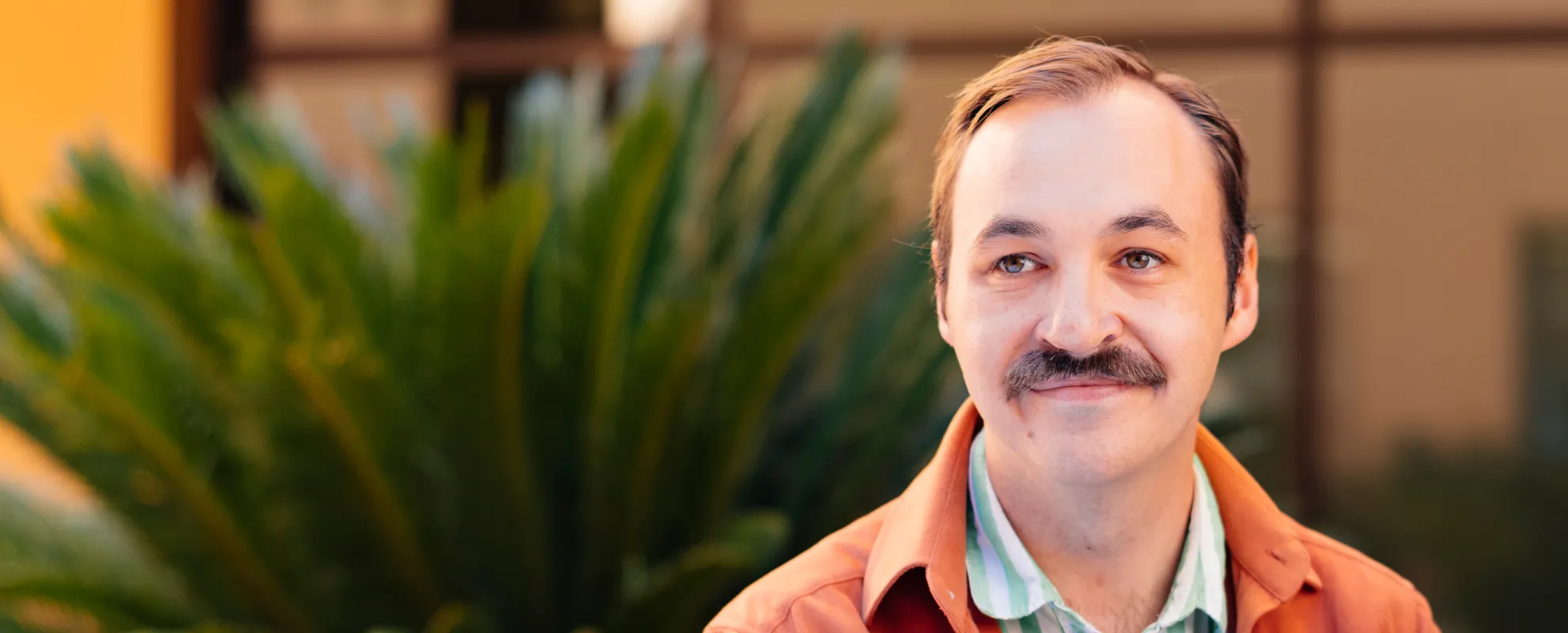Alex Szolnoki’s professional passion — and the main reason he left a career as a medical doctor and healthtech manager to attend Stanford’s MSx Program — is figuring out how to move medical data efficiently and effectively among systems that often don’t speak the same language.
“All of these systems use their own electronic health records or information systems,” says Szolnoki, who’s referred to as “Dr. Alex” by his classmates. “Each system describes structures and data using very different language. It’s like one system speaks French, one system speaks Swahili, and another speaks Mandarin Chinese. So three separate patients could go to hospitals with the same clinical problem, but how that information is recorded will be wildly different because these three systems use different codes and terminology.”
In addition, the workforce in each location may have its own way to store and label that information. “It then becomes difficult for information to be exchanged meaningfully,” says Szolnoki, who intends to help remedy that. But he knows meeting that challenge will require the leadership and managerial skills he came to Stanford GSB to acquire.
What convinced you to leave your career at Medtronic and enroll in the MSx Program?
Some years ago, I pivoted out of clinical medicine and nailed my flag to health tech, digital health, and clinical informatics. Through the years, I accrued a lot of skills and disparate skill sets. But I was coming to what felt like a natural ceiling in my career, and to take the next step up in this chosen field, I needed to learn some skills — the fundamentals of management and business. A lot of companies provide in-house training, but I wanted to throw myself into a unique environment and dedicate my time to getting these skills.
Have your goals evolved during your time at Stanford?
When I initially came to the GSB, I was set on the entrepreneurship track. I had an idea I wanted to explore and see whether that idea was viable. Thanks to some of the professors’ honest feedback and discussion, I realized it’s not viable. I still want to improve my managerial skills, but now I also want to find a company, a space, a problem that might still be in the early stages of being solved, and feel passionate enough to spend years trying to tackle it.
You’ve expressed a need for well-governed and free-flowing data to revolutionize healthcare. Explain what you mean by that.
When it comes to health and clinical systems, hospitals or digital health products, we have information about ourselves all over the place, stored and locked in disparate systems. There are many hurdles — technical, political, and financial — that work as barriers preventing health information from flowing from different services, products, or even sites of the same company. As patients, we have a legal right to that information. We can demand access. But it doesn’t always work out that way, and many people are unaware of these rights of access, ownership, movement, or portability of our information.;
It’s just not something most people think about.
They don’t think about their digital footprint or what kind of information exists about them in these various systems. My personal view is that if we truly want these revolutions in healthcare and next-generation health products, it will rely on a different attitude toward our health data and information, how it can be controlled, accessed, used, and even sold. All of these are conversations that need to start happening to build a healthcare system of the future.
Your most recent role at Medtronic was to make surgical robotics more data-led. Could you explain how that works?
Let’s say I, in my role as a doctor, wanted to remove someone’s gallbladder. The app would guide you through the surgery. It leaned into the idea of education to standardize surgical techniques. The difference in techniques varies greatly from country to country, from hospital to hospital, and even from surgeon to surgeon. The app used data to help standardize surgery in a way that’s beneficial for patients and accelerates the learning curve for surgeons. The platform was collecting thousands of videos, so it was a natural next step to train machine learning models to watch these videos and identify steps, processes, and clinical events, and that essentially led to a data and analytics report that could be sent to a surgeon once they completed a procedure. Initial use was around training and giving surgeons insight into their practices.
You worked in telemedicine at Babylon Health. How did the COVID-19 pandemic change the way people view telemedicine?
Generally, you can split all of human existence into pre- and post-pandemic. When I was at Babylon, telemedicine had been around for a while. It was adopted in many different industries, but it was viewed with suspicion and apprehension in medicine. There were concerns about safety and the ability to adequately do the work of a doctor if you’re not in the room with someone. Then the pandemic hit.
Digital tools and infrastructure became a lifesaver and allowed people to have a semblance of normal activity in unusual times. The pandemic got everyone on the same page, and people are now having more advanced conversations about the role digital tools play in healthcare. Digital and tech literacy is much more a part of medical education than when I was a medical student.
Have you benefited from the guidance of any mentors along the way?
One mentor pivoted into digital health technology and now runs a consultancy business. He’s an eternal optimist, and he loves any kind of innovation, gadget, and tool and actively looks for ways to incorporate them into his practice. He uses tools in fundamentally novel ways and is a constant innovator. He helped me think like an engineer.
Your ultimate career goal is to become a chief clinical information officer. What do you imagine you can accomplish in that role?
Some of the shifts I want to see in the healthcare industry require a position where I can use my strategic acumen to bend products, services, teams, and organizations. If I want to act on that mission, it will require that I be in a leadership role.
Photos by Elena Zhukova


